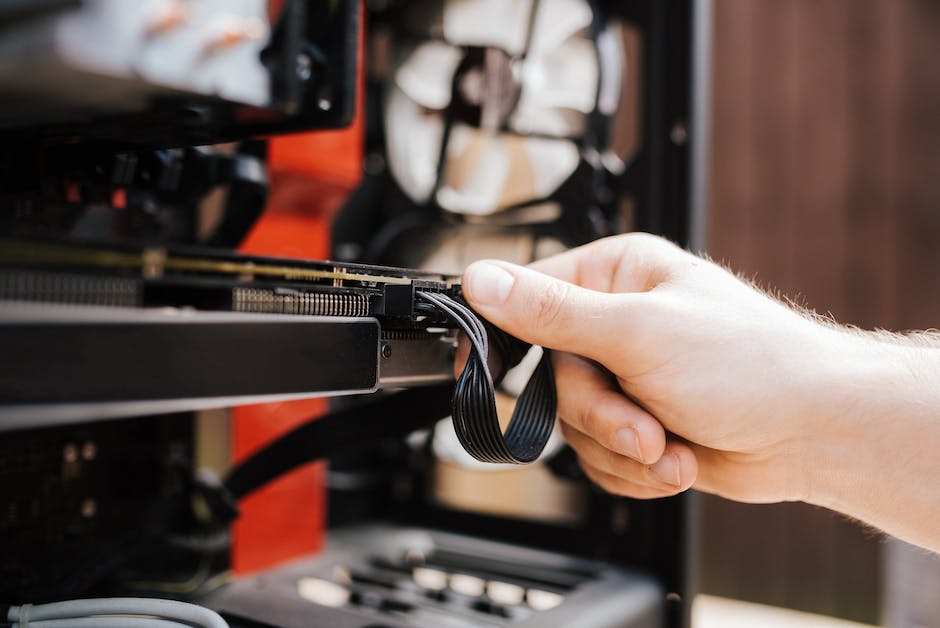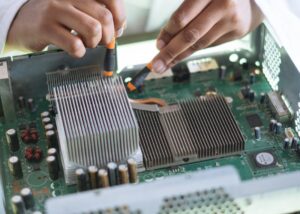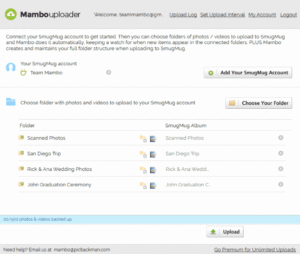-
Table of Contents
- Understanding the Factors Behind Slower Internet Speeds on Android and iOS Devices at Night
- Exploring the Impact of Network Congestion on Internet Speeds during Nighttime on Android and iOS
- Tips and Tricks to Boost Internet Speed on Android and iOS Devices during Nighttime
- Analyzing the Role of Background Processes in Slowing Down Internet on Android and iOS at Night
- Optimizing Wi-Fi and Cellular Settings to Improve Internet Speed on Android and iOS Devices at Night
- Q&A
Tagline: “Boost Your Internet Speed: Unraveling the Mystery of Slower Nighttime Connections on Android and iOS”
Solution: Optimize Your Network for Lightning-Fast Browsing
Introduction:
The internet speed on your Android and iOS devices may be slower at night due to various factors. Understanding these reasons can help you identify potential solutions to improve your internet speed during nighttime usage. Here are some common causes and steps you can take to fix the issue.
Understanding the Factors Behind Slower Internet Speeds on Android and iOS Devices at Night
Why the Internet on your Android and iOS is slower at night, and what to do to fix it
In today’s digital age, having a fast and reliable internet connection is crucial for staying connected and getting things done. However, many Android and iOS users have noticed that their internet speeds tend to slow down at night. This can be frustrating, especially when you’re trying to stream a movie or download a large file. In this article, we will explore the factors behind slower internet speeds on Android and iOS devices at night and provide some tips on how to fix it.
One of the main reasons why internet speeds on Android and iOS devices slow down at night is increased network congestion. During the day, when most people are at work or school, the demand for internet bandwidth is relatively low. However, as the evening approaches, more and more people return home and start using their devices, causing a surge in internet traffic. This increased demand puts a strain on the network infrastructure, leading to slower speeds for everyone.
Another factor that contributes to slower internet speeds at night is the limited capacity of internet service providers (ISPs). While ISPs strive to provide fast and reliable internet connections, they have a finite amount of bandwidth available. During peak hours, such as in the evening, the demand for bandwidth exceeds the available capacity, resulting in slower speeds for users. This is especially true in densely populated areas where the number of users sharing the same network is higher.
Furthermore, the type of internet connection you have can also affect your internet speeds at night. If you’re using a wireless connection, such as Wi-Fi or mobile data, the signal strength can weaken as more people in your vicinity connect to the same network. This can lead to slower speeds and even intermittent connectivity issues. Additionally, if you’re using a shared Wi-Fi network, such as in an apartment building or a coffee shop, the increased number of users during peak hours can further degrade your internet speeds.
So, what can you do to fix the slower internet speeds on your Android and iOS devices at night? One solution is to upgrade your internet plan to a higher speed tier. By doing so, you’ll have access to more bandwidth, which can help alleviate the congestion and provide faster speeds, even during peak hours. Contact your ISP to inquire about available options and pricing.
Another option is to optimize your network settings. Start by ensuring that your router is placed in a central location, away from obstructions and interference. Additionally, consider changing the Wi-Fi channel on your router to avoid interference from neighboring networks. You can also try using a wired connection instead of relying on Wi-Fi, as wired connections tend to be more stable and faster.
If you’re experiencing slow speeds on your mobile data connection, try toggling the airplane mode on and off or restarting your device. This can help refresh your connection and potentially improve speeds. Additionally, consider using a virtual private network (VPN) to encrypt your internet traffic and bypass any network congestion.
In conclusion, slower internet speeds on Android and iOS devices at night can be attributed to increased network congestion, limited ISP capacity, and the type of internet connection being used. To fix this issue, consider upgrading your internet plan, optimizing your network settings, and using a wired connection or VPN. By taking these steps, you can ensure a faster and more reliable internet experience, even during peak hours.
Exploring the Impact of Network Congestion on Internet Speeds during Nighttime on Android and iOS
Why the Internet on your Android and iOS is slower at night, and what to do to fix it
In today’s digital age, we rely heavily on our smartphones for various tasks, from checking emails to streaming videos. However, have you ever noticed that your internet speed on your Android or iOS device tends to slow down at night? This phenomenon is not uncommon and can be attributed to network congestion during nighttime hours.
Network congestion occurs when there is a high demand for internet usage in a specific area, surpassing the capacity of the network infrastructure. During the day, when most people are at work or school, the internet traffic is relatively low, resulting in faster speeds. However, as the evening approaches and people return home, the demand for internet usage increases significantly, leading to slower speeds.
One of the primary reasons for this congestion is the increase in streaming activities during nighttime hours. Many people enjoy watching their favorite shows or movies on platforms like Netflix or YouTube in the comfort of their homes after a long day. This surge in streaming traffic puts a strain on the network, causing slower speeds for everyone connected to it.
Another factor contributing to network congestion at night is online gaming. Gaming has become increasingly popular, with millions of players engaging in multiplayer games simultaneously. These games require a stable and fast internet connection, which can put additional strain on the network infrastructure during peak gaming hours.
Furthermore, the use of video conferencing applications has skyrocketed in recent years, especially during the COVID-19 pandemic. With more people working remotely and attending virtual meetings, the demand for video conferencing has surged. As a result, the network becomes congested, leading to slower internet speeds during nighttime hours.
So, what can you do to fix this issue and enjoy faster internet speeds on your Android or iOS device at night? Here are a few tips:
1. Consider upgrading your internet plan: If you consistently experience slow speeds at night, it might be worth considering upgrading your internet plan to a higher speed tier. This will provide you with more bandwidth, allowing you to have a smoother internet experience, even during peak hours.
2. Connect to a Wi-Fi network: If you’re using mobile data on your Android or iOS device, consider connecting to a Wi-Fi network instead. Wi-Fi networks often have higher bandwidth capacities compared to mobile networks, which can result in faster speeds, even during congested periods.
3. Limit bandwidth-intensive activities: If you’re experiencing slow speeds, try to limit bandwidth-intensive activities such as streaming high-definition videos or downloading large files. By reducing the demand for bandwidth, you can potentially improve your internet speed.
4. Use a virtual private network (VPN): A VPN can help bypass network congestion by routing your internet traffic through a different server. This can potentially improve your internet speed by avoiding congested routes.
In conclusion, the slower internet speeds on your Android or iOS device at night can be attributed to network congestion caused by the increased demand for internet usage during nighttime hours. By considering the tips mentioned above, you can potentially improve your internet speed and have a smoother online experience, even during peak hours.
Tips and Tricks to Boost Internet Speed on Android and iOS Devices during Nighttime
Why the Internet on your Android and iOS is slower at night, and what to do to fix it
In today’s digital age, having a fast and reliable internet connection is essential. Whether you’re browsing the web, streaming videos, or using social media, a slow internet connection can be frustrating. Interestingly, many users have noticed that their internet speed on Android and iOS devices tends to be slower at night. This phenomenon can be attributed to a variety of factors, including network congestion and technical limitations. Fortunately, there are several tips and tricks you can employ to boost your internet speed during nighttime.
One of the main reasons why internet speed is slower at night is network congestion. During the day, when most people are at work or school, the demand for internet services is relatively low. However, as the evening approaches, more and more people return home and connect to the internet. This sudden surge in users puts a strain on the network infrastructure, leading to slower speeds for everyone. Additionally, many internet service providers allocate more bandwidth to commercial customers during the day, leaving residential users with limited resources during peak hours.
Another factor that contributes to slower internet speeds at night is technical limitations. Mobile networks, such as 4G and 5G, rely on a finite amount of spectrum to transmit data. As more users connect to the network, the available spectrum is divided among them, resulting in reduced speeds for each individual user. This is especially true in densely populated areas where the number of users is significantly higher. Furthermore, the distance between your device and the nearest cell tower can also affect your internet speed. If you live in a remote area, you may experience slower speeds due to the limited coverage.
Now that we understand why internet speed is slower at night, let’s explore some tips and tricks to boost your internet speed on Android and iOS devices during nighttime. One effective method is to switch to a less congested network. If you’re using mobile data, try switching from 4G to 3G or vice versa. While 4G offers faster speeds, it is also more susceptible to congestion. By switching to 3G, you may experience a more stable and reliable connection. Similarly, if you’re connected to a Wi-Fi network, consider switching to a less crowded channel. Most routers allow you to manually select a channel, so experiment with different options to find the one with the least interference.
Another tip to boost your internet speed is to limit the number of devices connected to your network. Each device connected to your network consumes a portion of the available bandwidth, so reducing the number of devices can help alleviate congestion. Disconnect any unnecessary devices or prioritize your essential devices to ensure they receive the maximum bandwidth. Additionally, you can try resetting your network settings on your Android or iOS device. This can help clear any temporary glitches or conflicts that may be affecting your internet speed.
In conclusion, the slower internet speed on Android and iOS devices at night can be attributed to network congestion and technical limitations. However, by implementing some simple tips and tricks, you can boost your internet speed during nighttime. Switching to a less congested network, limiting the number of devices connected to your network, and resetting your network settings are all effective methods to improve your internet speed. Remember, a fast and reliable internet connection is within your reach, even during the busiest hours of the night.
Analyzing the Role of Background Processes in Slowing Down Internet on Android and iOS at Night
Why the Internet on your Android and iOS is slower at night, and what to do to fix it
In today’s digital age, having a fast and reliable internet connection is crucial for many of us. Whether it’s for work, entertainment, or staying connected with loved ones, we rely on our Android and iOS devices to keep us connected to the online world. However, you may have noticed that your internet speed tends to slow down at night, leaving you frustrated and wondering why this is happening. In this article, we will analyze the role of background processes in slowing down the internet on Android and iOS devices at night and provide some solutions to fix it.
One of the main reasons why your internet may be slower at night is due to the increased number of users online during those hours. As people finish their work or school obligations, they tend to spend more time on their devices, streaming videos, playing online games, or simply browsing the web. This surge in internet activity can put a strain on the network infrastructure, leading to slower speeds for everyone.
Another factor that contributes to slower internet speeds at night is the presence of background processes running on your device. These processes are essential for the smooth functioning of your device, but they can also consume a significant amount of bandwidth, especially when left unchecked. Background processes include automatic app updates, cloud backups, and system maintenance tasks, among others. While these processes are necessary, they can slow down your internet connection if they are all running simultaneously.
To address this issue, it is important to take control of the background processes on your Android or iOS device. One way to do this is by manually managing your app updates. Instead of allowing all your apps to update automatically, you can choose to update them individually or only when connected to a Wi-Fi network. This way, you can control when and how much bandwidth is being used for updates, preventing them from slowing down your internet connection at night.
Similarly, you can adjust the settings for cloud backups on your device. Cloud backups are essential for keeping your data safe, but they can also consume a significant amount of bandwidth. By scheduling backups to occur during off-peak hours or reducing the frequency of backups, you can ensure that they do not interfere with your internet speed at night.
In addition to managing background processes, optimizing your Wi-Fi network can also help improve your internet speed at night. One common issue is the distance between your device and the Wi-Fi router. The farther away you are, the weaker the signal strength, resulting in slower speeds. To address this, try moving closer to the router or consider investing in a Wi-Fi range extender to boost the signal strength in areas with poor coverage.
Another factor to consider is the number of devices connected to your Wi-Fi network. Each device consumes a portion of the available bandwidth, so if you have multiple devices connected simultaneously, it can lead to slower speeds for each device. To alleviate this, you can prioritize certain devices or limit the number of devices connected at the same time.
In conclusion, the slower internet speed on your Android and iOS devices at night can be attributed to the increased number of users online and the presence of background processes consuming bandwidth. By manually managing app updates, adjusting cloud backup settings, and optimizing your Wi-Fi network, you can improve your internet speed and ensure a smoother online experience. Remember, a fast and reliable internet connection is within your control, even during peak hours.
Optimizing Wi-Fi and Cellular Settings to Improve Internet Speed on Android and iOS Devices at Night
Why the Internet on your Android and iOS is slower at night, and what to do to fix it
In today’s digital age, having a fast and reliable internet connection is crucial for staying connected and getting things done. However, many Android and iOS users have noticed that their internet speed tends to slow down at night. This can be frustrating, especially when you’re trying to stream a movie or download a large file. In this article, we will explore the reasons behind this phenomenon and provide some tips on how to optimize your Wi-Fi and cellular settings to improve internet speed on your Android and iOS devices at night.
One of the main reasons why internet speed slows down at night is increased network congestion. During the day, when most people are at work or school, the demand for internet bandwidth is relatively low. However, as the evening approaches, more and more people return home and start using their devices, causing a surge in internet traffic. This increased demand puts a strain on the network infrastructure, resulting in slower internet speeds for everyone.
Another factor that contributes to slower internet speeds at night is the limited capacity of internet service providers (ISPs). While ISPs strive to provide fast and reliable internet connections, they have a finite amount of bandwidth available. During peak hours, such as in the evening, the demand for bandwidth exceeds the available capacity, leading to slower speeds for users.
To combat these issues and improve your internet speed at night, there are several steps you can take. First, consider optimizing your Wi-Fi settings. Start by ensuring that your router is placed in a central location, away from walls and obstructions, to maximize signal strength. Additionally, try changing the Wi-Fi channel on your router to avoid interference from neighboring networks. You can use apps or software tools to identify the least congested channel in your area.
Another way to improve your Wi-Fi speed is by reducing the number of devices connected to your network. Disconnect any devices that are not in use, as they can consume valuable bandwidth. Additionally, consider limiting bandwidth-intensive activities, such as streaming high-definition videos or downloading large files, during peak hours. By managing your Wi-Fi usage, you can help alleviate network congestion and improve your internet speed.
If you’re experiencing slow internet speeds on your iOS device, you can also try resetting your network settings. This can help resolve any software glitches or conflicts that may be affecting your connection. To do this, go to the Settings app, select General, then Reset, and finally, Reset Network Settings. Keep in mind that this will remove any saved Wi-Fi passwords, so make sure you have them handy before proceeding.
For Android users, clearing the cache and data of your internet browser can also help improve internet speed. Over time, your browser accumulates temporary files and data that can slow down your browsing experience. By clearing this cache, you can free up storage space and potentially improve your internet speed.
In conclusion, slower internet speeds on Android and iOS devices at night can be attributed to increased network congestion and limited ISP capacity. However, by optimizing your Wi-Fi and cellular settings, you can improve your internet speed. Consider optimizing your Wi-Fi settings, reducing the number of connected devices, and managing bandwidth-intensive activities. Additionally, resetting network settings on iOS devices and clearing browser cache on Android devices can also help improve internet speed. By implementing these tips, you can enjoy a faster and more reliable internet connection, even during peak hours.
Q&A
1. Why is the internet on your Android and iOS slower at night?
The internet on your Android and iOS devices may be slower at night due to increased network congestion as more people are using the internet during that time.
2. What causes network congestion at night?
Network congestion at night can be caused by various factors, including increased usage by individuals streaming videos, playing online games, or downloading large files.
3. How can you fix slow internet on your Android and iOS devices at night?
To fix slow internet at night, you can try the following steps:
– Connect to a Wi-Fi network with a stronger signal.
– Restart your device and router.
– Clear cache and data of the apps consuming excessive bandwidth.
– Disable background app refresh or limit app usage.
– Consider upgrading your internet plan or contacting your service provider for assistance.
4. Can using a VPN help improve internet speed at night?
Using a VPN may or may not improve internet speed at night, as it depends on various factors such as the VPN server’s location and the overall network congestion. It is worth trying different VPN servers to see if it improves your connection.
5. Is there a specific time when the internet is faster at night?
There is no specific time when the internet is universally faster at night, as it can vary depending on your location, service provider, and the level of network congestion. However, some users may experience relatively faster speeds during late-night hours when fewer people are actively using the internet.Conclusion: The internet on Android and iOS devices tends to be slower at night due to increased network congestion caused by higher user activity during peak hours. To fix this issue, users can try the following steps:
1. Connect to a Wi-Fi network instead of relying on cellular data.
2. Restart the device and router to refresh the network connection.
3. Clear the cache and temporary files on the device to optimize its performance.
4. Disable unnecessary background apps and processes that may be consuming network resources.
5. Consider using a virtual private network (VPN) to bypass potential congestion and improve internet speed.
6. Contact the internet service provider to inquire about any network maintenance or issues in the area.









